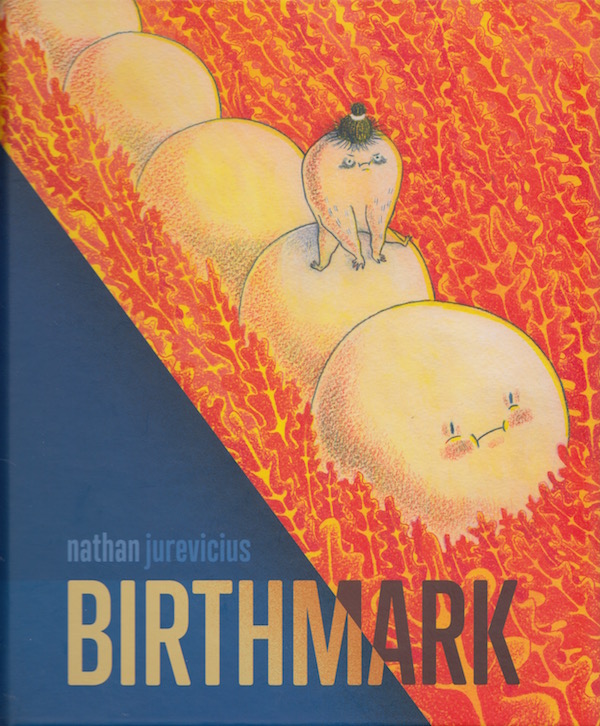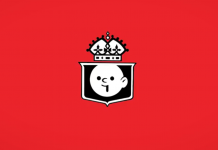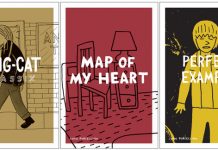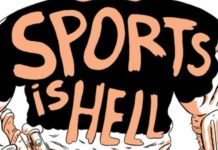Walking a thin line between depressing and uplifting — a line I hadn’t really thought about existing before — Nathan Jurevicius’ Birthmark brings a familiar tale of vengeance into a completely alien world.
Our unnamed walking wart-like lump of a hero begins by recounting his brief history and surroundings in the Bordertown, a tale of ugliness that sees his family torn apart and him thrown into the streets alone. Like the protagonist of a Decemberists song, our hero skulks through the horror and ugliness of his home, a place known for the processing of grub meat, an activity that transforms it spiritually into a large-scale abattoir that our hero is forced to take part in in order to make a pittance to help him survive.
Some people are just marked for misfortune, and our hero is definitely one of those, raising the ire of religious nuts and becoming so cast-off from society that he ends up kidnapping a baby grub so that he has a friend. This becomes a turning point for him that opens up a highway to the future and a chance to correct all the wrongs that have been done to him and his family, as well as take a healthy dose of revenge. And so the story continues walking that depressing and uplifting line until the very end.
Jurevicius’ tale unfolds like a storybook. There aren’t any sequential sections or word balloons or anything like that, just page and narrative combinations, though it’s first person narration keep it from being precious, as does the art, which is heavy, dark, muddy, often the stuff of nightmares, but nightmares you don’t always comprehend or remember very clearly. At times, the illustrations resemble Ralph Steadman in its depiction of a gloomy, apocalyptic world populated by cartoonish, lumbering, sinister pustules.
In the end, Jurevicius suggests that the suffering and awfulness and the ugliness and the hurt may all exist for a purpose larger than one person’s devastation. All I can say is that I hope so.







